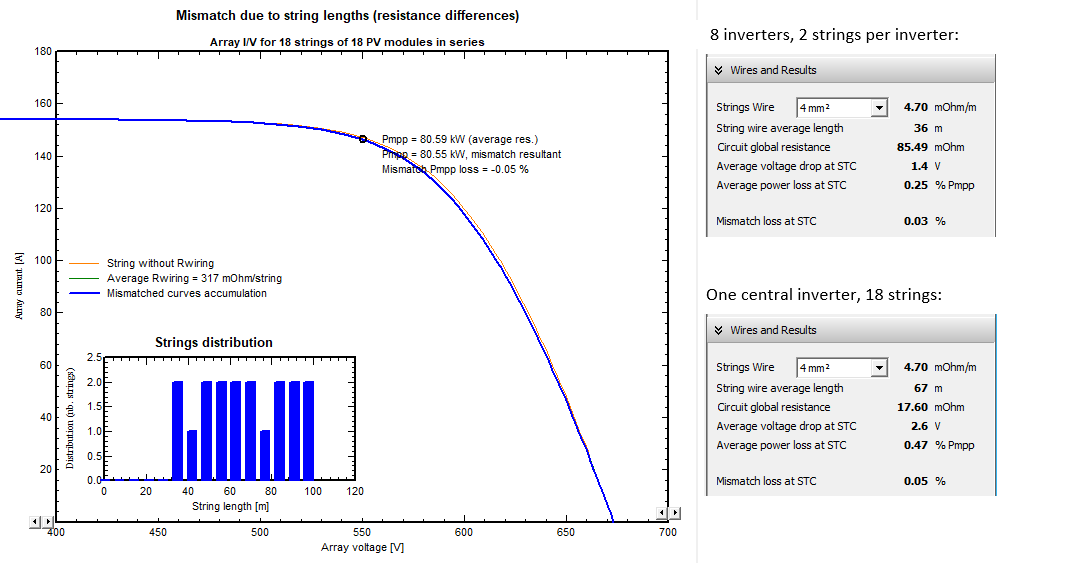|
<< Click to Display Table of Contents >> Mismatch between strings for a System |
  
|
|
<< Click to Display Table of Contents >> Mismatch between strings for a System |
  
|
See also Array Mismatch Losses
The tool "String Mismatch" (available from "Detailed Losses") provides a set of tools, the 3 first ones dedicated to a detailed presentation of the mismatch principles.
The other options of this dialog are related to specific studies initially based on your system configuration.
But this doesn't intend to represent your exact system: this is a typical representation of a "simple" rectangular system in rows. You can modify all parameters (size and number of tables, rows of tables, number and position of inverters, etc...). The aim is to better understand the issues related to a general configuration (string wire lengths and mismatch).
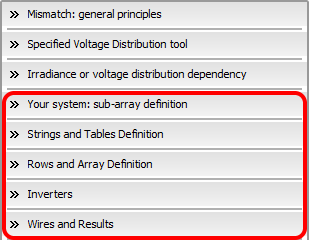
Sub-array definition
This first option shows a system layout initially corresponding to your sub-array definition. But you can change the number of strings and their length.
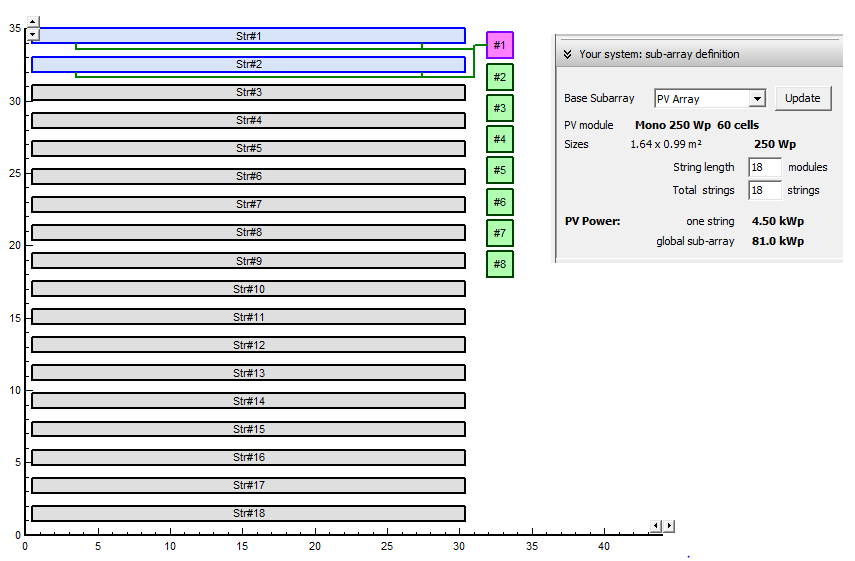
Strings and Tables definition
Initially each table represents one string. But you can change the orientation of the modules, the number of modules (one or several strings in width) and the number of strings in a table.

Rows and Array definitions
You can now reorganize your system layout with these new tables (number of tables in width), adjust the pitch, etc.
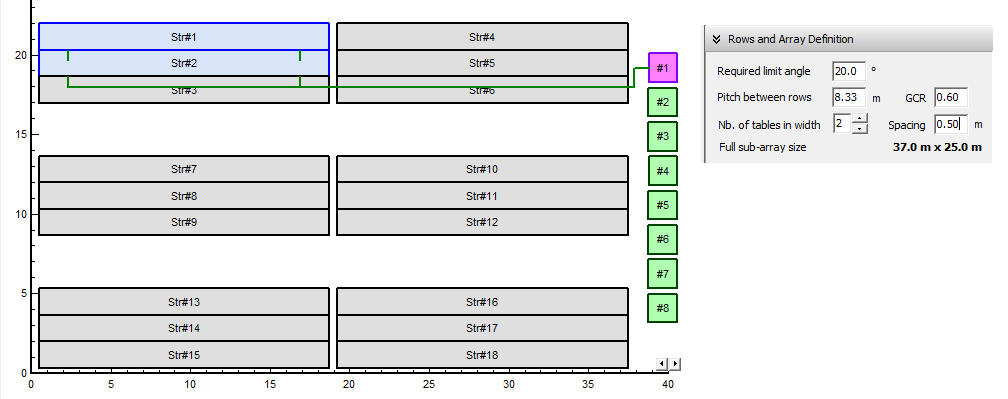
Inverters
Now you can define the inverter's position: grouped at a specified position, next to the row concerned by it's string, next to the concerned string.
- You can identify the strings attributed to one inverter input by selecting it with the mouse.
- You can displace each inverter on the scene using the mouse.
- You can displace the whole group of inverters by displacing the first inverter.
During these displacements the dialog shows the wire length of one string, and the total for the selected inverter input.
You can change the number of inverter inputs, for analyzing the string mismatch differences.
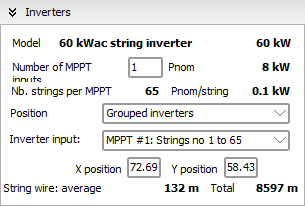
Wires and results
Finally we get the results of the mismatch loss for one MPPT input (the selected inverter). In this example, 0.03% for 2 strings per input.
In the preceding option, we can try to choose one only inverter (centralized). The mismatch result will then be 0.05%, i.e. about 0.02% higher !!!.
